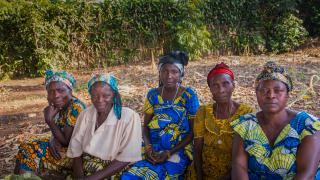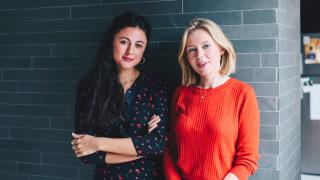The Power of Friendship
On International Friendship Day, women survivors of war share what friendship means to them
(After my husband was killed) I had been feeling very depressed. The doctor advised me to connect with other women, so that I could share my challenges and hear about the similar obstacles they were dealing with.

The women in my group are like my sisters—we share so much. I am no longer the single mother from rape, isolated and rejected.
Breaking down isolation
Being in the programme has helped me to build friendships with women of other religions and tribes. We support each other emotionally and financially when we need it.
The secret ingredient for women's empowerment
Now, I have money and I have friends. All those women are my friends. Recently one of them lost their child and we all went to her farm to help her. It’s not only the money but the way we gather together that has changed my life.
Read more
Comfort Zones Anthology
subtitle:
On the eve of the publication of Comfort Zones anthology which encourages 28 female writers to dig deep and write something brave and new, Kate Hamilton and Emily Ames, founders of Sonder & Tell have pulled together some of their favourite story collections – to read, and then to pass on.
A marriage certificate might sound like just a piece of paper, but for marginalised women in eastern DRC, it’s an important step towards greater security, self-reliance and securing rights.
Our Global Advocacy Manager, Stephanie Siddall, discusses global progress towards gender equality and what more we must do to ensure that the most marginalised women and girls aren't left behind.

